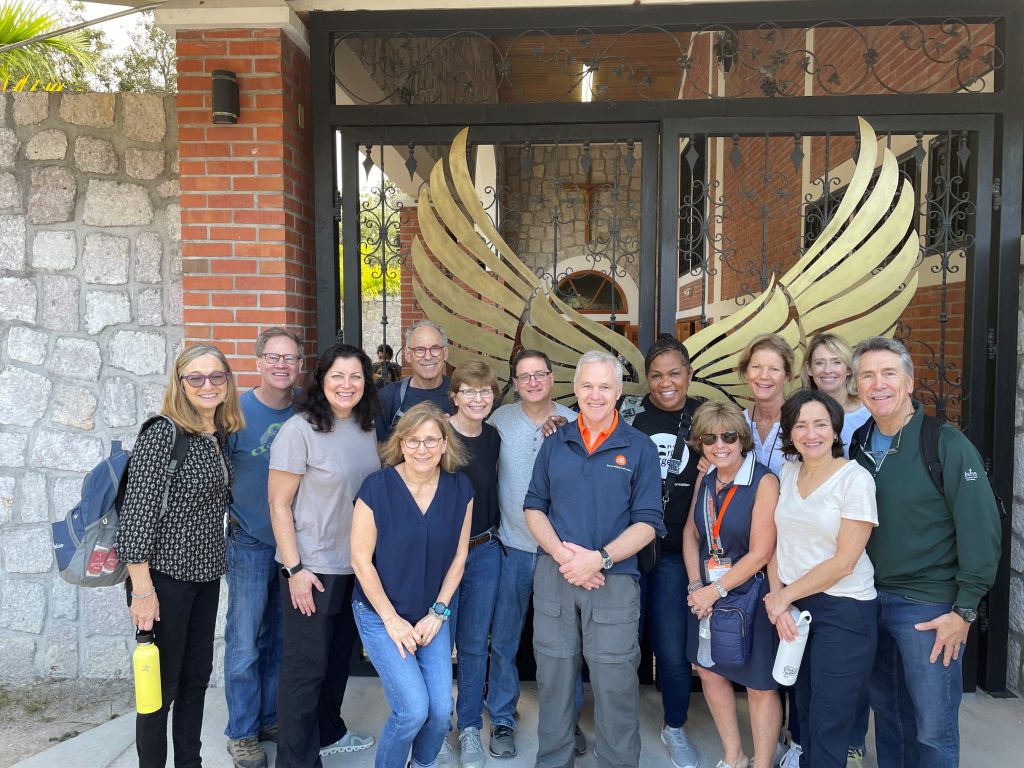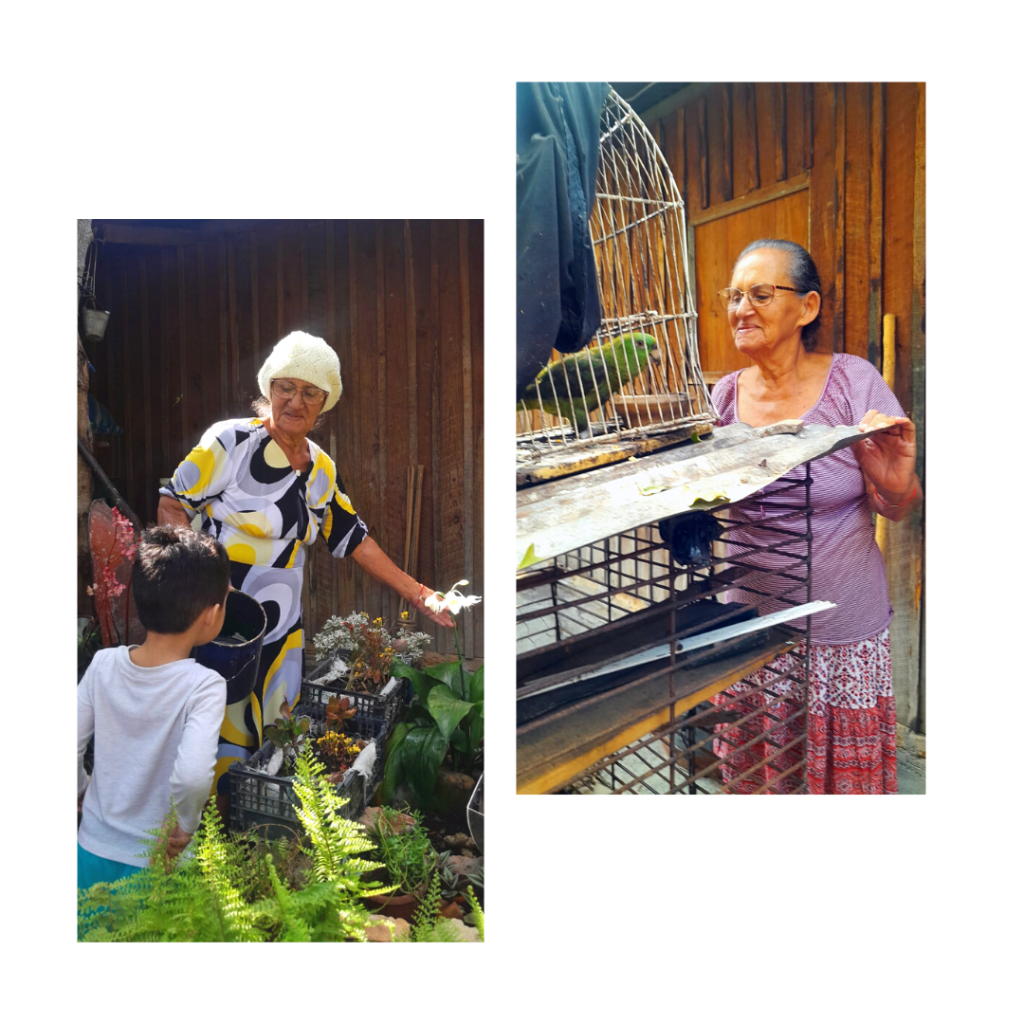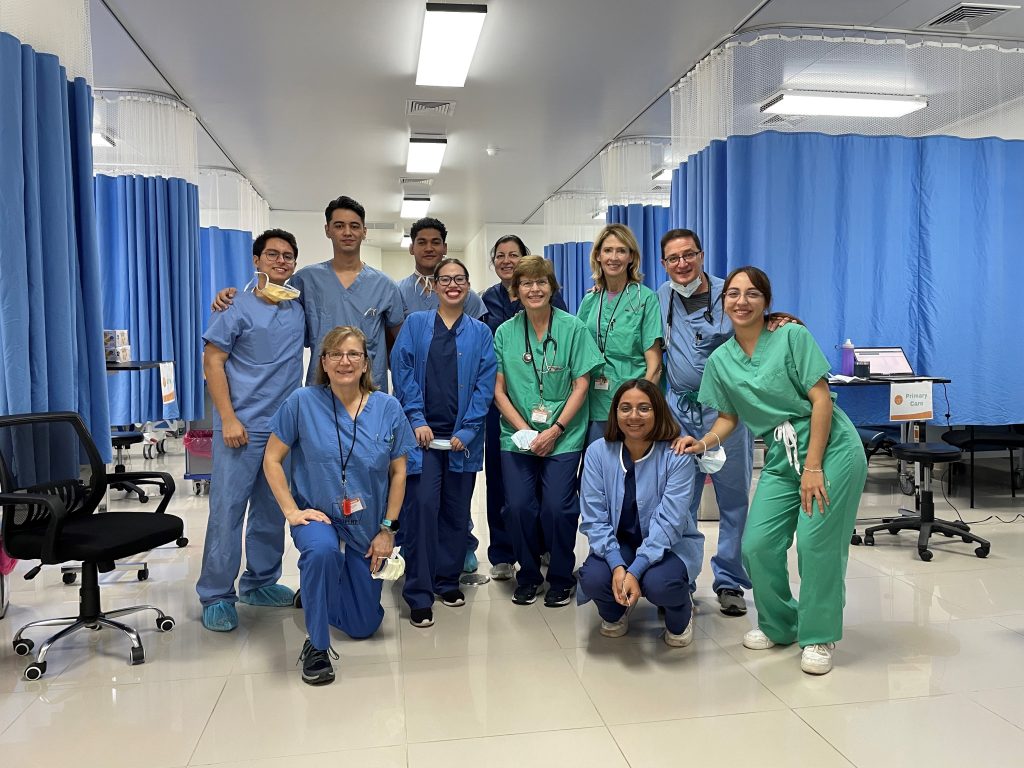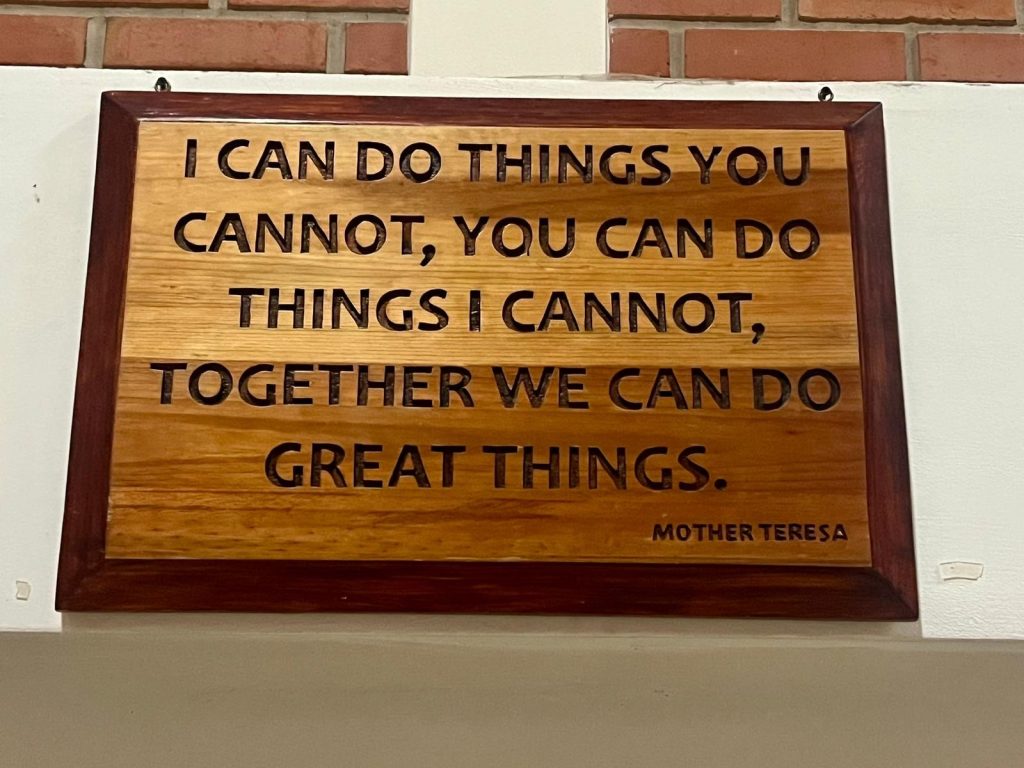Medical Intervention: Dr. Lanza Prevents Stroke Risk for Honduran Patient
Can you describe your background and what inspired you to volunteer with One World Surgery?
I’m an internist, practicing primary care medicine for 35 years in Paoli, Pennsylvania. I attended medical mission trips in Haiti in 2017 and 2018 with a team from St. Norbert’s Parish. This past January was my first trip to Honduras. My wife Carolyn, a registered nurse, attended with me. My first trip opened my eyes to a different world and way of practicing medicine from what I was accustomed to. It was a rewarding and humbling experience. Once Haiti became too dangerous to travel to, I started looking for another place for our team to go and serve patients. A colleague of mine went to Honduras with a surgical group last year and told me about his experiences. As I learned more about One World Surgery, I thought it would be a great opportunity for our St. Norbert’s medical mission team.

Can you describe a specific instance during your volunteer mission with One World Surgery where your expertise as a doctor played a crucial role in saving a patient’s life?
Many of the patients that we saw in the primary care clinic needed preoperative medical clearance for their upcoming surgery. An older woman named Olimpia, accompanied by her daughter, came in one afternoon to be cleared for cataract surgery. During the visit, she expressed feelings of fatigue and shortness of breath that she had for several weeks. I started to examine her and found her pulse was very rapid and irregular. We obtained an EKG, and it confirmed her symptoms were due to her rapid atrial fibrillation. If left untreated, the condition can put the individual at risk of having a stroke. She was not in distress, but I felt that she needed to be treated urgently to slow her heart rate and be placed on blood thinning medication to prevent a stroke. I sent her to the closest hospital for these treatments, which successfully controlled her heart rate.
Three weeks later, Olimpia’s feet began to swell painfully, so her family took her to a private clinic. There, the doctor told her that if she didn’t immediately see a cardiologist, she would die. They spent the entire day at the cardiologist, where they successfully adjusted her medication. She has since stabilized and is now back to her normal routine.

How does your experience volunteering with One World Surgery differ from your regular practice?
The challenging part was learning the EMR system, but I had a translator and a scribe to assist me which I don’t have at home. The resources are different and they’re all new patients to me, whereas at home I’m more familiar. When a patient gets a chest X-ray at home, it’s read by a radiologist. I haven’t read chest X-rays or radiology studies in many, many years. So figuring that out was a challenge. But I was very impressed with the pharmacy. They have a lot of medications that we currently use.

As a volunteer provider with One World Surgery, how do you see your role contributing to the larger mission of providing healthcare access to underserved communities, and what motivates you to continue this work despite the challenges it may present?
When I went to Haiti, the experience was very different. We brought our own medications, gave patients a three-month supply, and hoped they would be seen again at the clinic. At One World Surgery in Honduras, there are primary care teams attending the clinic year-round. So, I felt my efforts were making more of a difference knowing that patients have follow-up care. I felt we made more of a positive impact for patients at OWS.
What does the spirit of service mean to you?
I had a mentor who I met in medical school who taught me many important principles. He emphasized that as a physician, one of our roles is to give back to our profession. This inspired me whether it was with my local community, mentoring students in the office, or participating in medical missions in underserved communities. There are plenty of opportunities to serve in our own country or abroad. I think it’s a personal and spiritual calling to give back and serve. Our mission team included several religious faiths, and we were all motivated to serve in Honduras.
What do you love about your job?
For me, it’s the patients that I love the most. You not only treat their physical symptoms, but also their spirit. Patients share thoughts and experiences with you that they wouldn’t share with anyone else. It’s a privilege and an honor to take care of the whole person.
Were there any moments from your trip that made you smile?
There were many! I admired the patience and gratitude of the people I treated. I remember one afternoon, I saw a woman in the clinic at 3:30pm. During the course of our visit, I asked, “What time did you arrive at the clinic?” She left her home at 4am to get there at 8am, so she was waiting for 11 hours to see a primary care provider. At the end of the visit, she smiled, thanked me for seeing her, and gave me a big hug. That blew me away. There is a plaque hanging in the Moscati Center with a quote from Mother Theresa: “I can do things you cannot. You can do things I cannot. Together, we can do great things.” The message is a guide for me, and something I carry with me.


